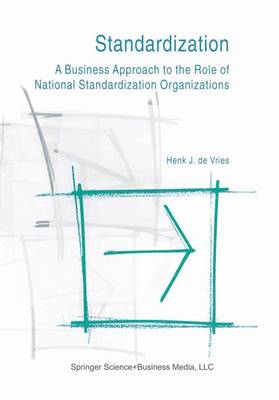This study fills a gap in standardization literature. It is the first academic analysis of national standardization organizations. These organizations exist in every country and may be private or governmental organizations. The first national standardization th organizations were founded in the early decades of the 20 century and were aimed at rationalizing industrial production. Their mode of operation reflects the sense of co operation at the national level and - in the telecommunications and electrotechnical field - at the intemationallevel as well. Now, however, the scene has changed, with companies operating internationally. Standards for products, processes, and services are crucial factors in determining success or failure on a fiercely competitive market, especially when functional compatibility is a prerequisite, as is the case in computer and telecommunications technologies. As a consequence, rather homogeneous needs of participants in standardization have given way to conflicting interests. This prompts a discussion about the traditional role of national standardization organizations. They increasingly depend on their exclusive links to the international standardization organizations ISO and IEC, and, in the case of Europe, the regional organizations CEN and CENELEC. In many cases, formal standardization organizations are not the obvious bodies for developing standards to meet business needs. Is this inevitable or could they improve performance and regain their market share? Henk de Vries answers this question against the background of current developments in standardization at the international, European, and national levels.
- ISBN13 9781441951038
- Publish Date 3 December 2010 (first published 30 November 1999)
- Publish Status Active
- Publish Country US
- Imprint Springer-Verlag New York Inc.
- Edition Softcover reprint of hardcover 1st ed. 1999
- Format Paperback
- Pages 320
- Language English
